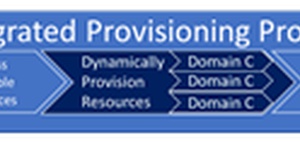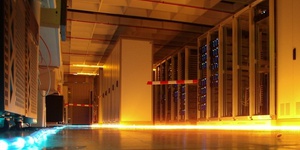
Whitepapers
The Economic Benefits of the Ciena Virtualized Edge Solution
Over the last decade, enterprise networking has experienced a key paradigm shift with the transition from the deployment of physical network appliances that host specific network functions to the virtualization of those network functions or Network Functions Virtualization.
Key benefits of virtualization include:
▶ All network functions share the same uCPE hardware platform
- Reduces CAPEX
- Lowers sparing expenses
- Reduces power consumption
- Decreases equipment obsolescence
- Increases operational agility
- Enables easy deployment of new network functions without hardware installation
▶ Complete application flexibility to meet ever-changing business requirements: Add applications or exchange for newer technologies without additional capital equipment investment
▶ A single uCPE device can support multiple network connections for reliability, including LTE/5G backup to provide for high availability
▶ NFV is well suited to network orchestration and automated management
▶ VNF software can be scaled up or down to meet branch office requirements
Read more about Ciena's Virtualized Edge Solution in Peter Fetterolf's business case The Economic Benefits of the Ciena Virtualized Edge Solution.
Contact sales@acgcc.com for more information about our business case analysis services.
You might like similar whitepapers


A TCO Comparison of Private WANs vs Managed Network Services for Enterprises

AUTONOMOUS NETWORKS: NOW IS THE TIME

Comparing Broadband Network Architectures in the Evolving Connectivity Landscape

Next-Generation Cloud Metro Network Requirements and Architectures

MODERNIZING THE CABLE SERVICE DELIVERY INFRASTRUCTURE

The Economic Benefits of Juniper Apstra and CN2 in a Modern 5G Network

AUTONOMOUS NETWORKS POWER INDUSTRY 4.0

Huawei Autonomous Driving Network: Standards-Based but Differentiated

Orchestrating Dynamic Enterprise Services

The Right Container Platform(s) for Modern OSS and BSS

The Driving Factors behind the Telecommunications Shift to Cloud Metro Networks

Itential Vendor Profile: Automation and Orchestration for Multi-Domain Networks

Key CommSoft Learnings from #MWC19

Understanding VRAN

Tunnel-Based versus Tunnel-Free SD-WAN

Mitigating Market Challenges in Telecommunications

Segment Routing: An ACG Research Whitepaper

Maximizing Efficiency Using Standards-Based, Model-Driven Infrastructures in NFV Deployments

The Economic Benefits of the Ciena Virtualized Edge Solution

The TCO Benefits of Dell’s Next-Generation Telco Servers

Simplifying IP Networks

The Economic Benefits of Automating Capacity Optimization in IP Networks

Building the Business Case for AI in Wireless Networks: Juniper Mist AI TCO Report

The Economic Benefits of Virtual Edge Services

Global Pricing for SD-WAN

The Missing Guide in SP Managed Services Profitability

THE BUSINESS CASE FOR ADAPTIVE IP

Achieving End-to-End Intelligence in the Cable Access Network

Hybrid Networks: Integrated Provisioning for Virtual and Physical Networks

Building Open, Scalable Service Delivery Infrastructures

5G Service Assurance: The Case for AIOps

Broadband Access Transformation

An Approach to Offering Profitable Managed Network Services

Huawei ADN Solution Approach to Implementing Autonomous Networks

Lenovo: Data Center Switch Solutions for Enterprise Data Centers

Propelling Operators to L3 Operations Autonomy and Beyond with Huawei ADN

TCO Benefits of Converged 5G Ready IP Transport

Meet Market Needs with Software-Enabled Solutions

Coriant’s Multi-Sided Platform Partner Program: Market Impact Report

Delivering Policy Continuity at Scale in Cloud IT and Managed Network Services

THE POWER OF DIFFERENTIATION: BUILDING BROADBAND FOR 2021 AND BEYOND

INTRODUCING xHAUL REWRITING THE PLAYBOOK FOR TRANSPORT NETWORKING IN THE RAN IN 5G

The TCO Benefits of Distributed Broadband Services with CUPS







